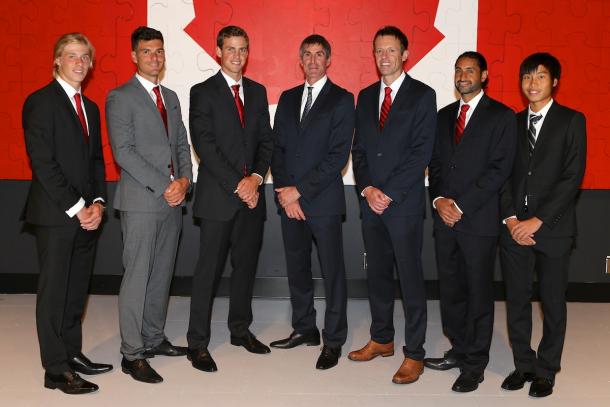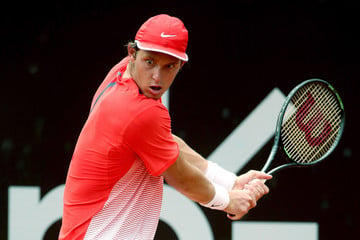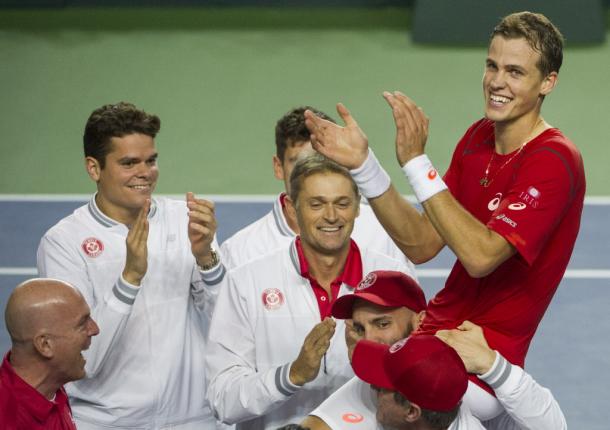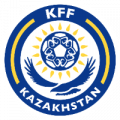Once again, an undermanned Canadian squad will take to the court in Davis Cup competition, looking to keep the great white north in the team competition’s top division as they host Chile in this week's Davis Cup World Group playoffs. The young Chilean team will head up north to Halifax, Nova Scotia looking to boot the Canadians out of the World Group for the first time since 2011.
Team Canada
It’s been a long time since Canada fielded a team at full-strength. In the last three years, ever since their semifinal run in 2013, Canada has contested five ties. Of those five, they have sent their strongest team to two of them: the first round in 2015 against Japan, and the 2014 playoffs against Columbia. That full strength team included number one and current world number six Milos Raonic, number two in singles and doubles Vasek Pospisil, and doubles legend Daniel Nestor.

Of those three men, only Pospisil will be in the lineup in Halifax and will be relied on heavily in the tie. Both Raonic and Nestor are out with injury. Not only are the Canadians not sending their number one player, they only have one of their top four (Pospisil) at their disposal. Canadians numbers five and six, veteran Frank Dancevic (world 236) and teen sensation Denis Shapovalov (world 245) will be in the lineup. They are joined by doubles specialist Adil Shamasdin, who is a last minute replacement for Nestor.
The Canadians will lean heavily on Pospisil, who will pull double duty, playing both singles and doubles. He will partner Shamsdin in the doubles. Dancevic will join Pospisil as the other Canadian singles player. If the Canadians clinch the tie before the fifth rubber, don’t be surprised if Shapovalov comes in to get a taste.
Team Chile
While losing Raonic and Nestor is a big blow for the Canadians, it will come as some consolation that the Canadians still have a massive rankings advantage over the young Chilean team. Chile is sending their strongest team, but that is not saying much as the Canadians are still stronger in the rankings. Three of the four Chilean players are age 23 or under and their rankings are almost all below those of the Canadians.

The Chilean number one is Gonzalo Lama. The 23-year-old is the highest ranked Chilean on the tour, coming in at 177, more than 50 spots behind Pospisil. However, Lama has not been included in the initial draw. That means 20-year-old Christian Garin, ranked 260, will be acting as the Chilean number one. Rounding out Chile’s lineup are Hans Podlipnik-Castillo, 65th in the world in doubles, and Nicolas Jarry, who falls outside the top 250 in both rankings. Jarry will be pulling double duty, playing both singles and doubles with Podlipnik-Castillo.
Analysis
Canada and Chile have played each other eight times previously, splitting the meetings 4-4. All eight of those meetings were played in the Americas zone, making this their first world group meeting. Chile won their most recent meeting back in 2008, when they topped the Canadians 3-2 at home in Chile. Interestingly, they have alternated every tie, meaning neither team has won consecutive ties over the other. That makes it Canada’s turn to win.
On top of the alternating results, the home team has won every tie between these two countries. Not surprisingly, the Chileans have won all four ties on clay, all in Chile, while the Canadians have won all four on their home soil, one on outdoor grass and three on indoor hard courts. This tie will be played on a fast indoor hard court in Halifax, giving the Canadians a massive advantage. This is the preferred surface of all the Canadians, except maybe Shapovalov based on his Wimbledon success, and puts the clay-loving Chileans at a serious disadvantage.

The Chileans are a bit of an unknown quantity, which makes them very challenging, especially in Davis Cup which tends to bring out the best in low-ranked players. However, the Canadians are known for upping their game when playing for the country. Pospisil has single-handedly carried Canada through a World Group playoff before (back in 2011, he won all three points for Canada with two singles wins and a doubles win to put Canada into the World Group) and will be expected to do it again this time. Dancevic has also been known to bring his best to Davis Cup, including his huge win in Canada’s upset of Spain in 2013.
Pospisil, the lone top-200 player in the tie at the moment, will be the heavy favourite in every match he plays. While the Canadian has been erratic this year, he still should have no trouble putting away any opponent. He and Shamasdin should also have a heavy advantage in the doubles. Pospisil alone could carry the Canadians through, but Dancevic is in a good position to provide some insurance. He is ranked higher than both his opponents and should be able to take care of at least one of them.
Prediction: Canada 4-1
Chile might steal one singles rubber, but it’s hard to see Pospisil dropping the ball in all three of his matches and Dancevic should be able to win at least one his singles matches. The Chileans could pull a surprise if all the Canadians are off their game, but on a fast indoor surface in front of the home crowd, the Canadians will be very difficult to stop.










































